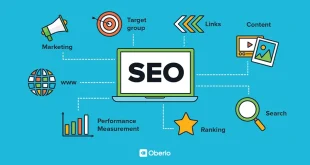Content marketing has emerged as a pivotal strategy for businesses to reach and engage their target audience effectively. Understanding the scope of content marketing involves delving into its various facets and recognizing its significance in today’s competitive landscape in content marketing.
Understanding the Scope of Content Marketing
To grasp the scope of content marketing, one must first identify the target audience and understand their preferences, interests, and pain points. Content can take various forms, including blog posts, videos, infographics, podcasts, and social media posts, catering to diverse audience segments.
Key Elements of a Successful Content Marketing Strategy
Setting clear objectives and goals is essential in devising a successful content marketing strategy. Whether it’s increasing brand awareness, driving website traffic, or generating leads, defining measurable outcomes is crucial. Additionally, content creation, distribution, and promotion play pivotal roles in achieving these objectives.
Exploring the Benefits of Content Marketing
The benefits of content marketing are manifold. Not only does it enhance brand visibility and credibility, but it also fosters deeper engagement with the target audience. Furthermore, well-crafted content can lead to higher conversion rates, ultimately driving business growth.
Challenges in Content Marketing
Despite its numerous benefits, content marketing comes with its fair share of challenges. From generating fresh and relevant content consistently to breaking through audience saturation, marketers often face obstacles in maintaining an effective content strategy.
Strategies to Overcome Content Marketing Challenges
To overcome these challenges, marketers can employ various strategies. Repurposing existing content, segmenting the audience based on their preferences, and staying abreast of industry trends are some effective approaches to tackle content marketing hurdles.
Content Marketing Tools and Technologies
A plethora of tools and technologies are available to streamline content marketing efforts. From SEO tools that optimize content for search engines to content management systems (CMS) that facilitate content creation and distribution, leveraging the right tools can significantly enhance marketing effectiveness.

Case Studies and Success Stories
Examining successful content marketing campaigns can provide valuable insights and inspiration. By analyzing case studies and success stories from leading brands, marketers can learn best practices and apply them to their own strategies.
Future Trends in Content Marketing
The dominance of video content, advancements in AI-driven content creation, and the increasing emphasis on personalization are among the key trends that marketers should anticipate and adapt to.
In the dynamic landscape of digital marketing, understanding the scope of content marketing is paramount for businesses aiming to establish a robust online presence. Content marketing encompasses a broad spectrum of strategies and tactics aimed at creating, distributing, and promoting valuable and relevant content to attract and engage a target audience.
Advertising Methods
The scope of content marketing extends beyond conventional advertising methods, focusing on building relationships with consumers through informative, entertaining, or educational content. This approach involves identifying the target audience’s needs, preferences, and pain points to tailor content that resonates with them.
Audience segments
Content marketing encompasses various formats, including blog posts, articles, videos, infographics, podcasts, social media posts, and more. Each format serves a unique purpose and caters to different audience segments, allowing businesses to reach their target demographics effectively.
Multiple platforms
Furthermore, the scope of content marketing extends across multiple channels and platforms, ranging from company websites and social media networks to email newsletters and third-party publications. By leveraging diverse channels, businesses can maximize their reach and engage with audiences across various touchpoints.
Brand Loyalty
Moreover, content marketing is not limited to acquiring new customers but also involves nurturing existing relationships and fostering brand loyalty. Through consistent and valuable content, businesses can establish themselves as industry authorities and build trust with their audience over time.
Business to recognize
Ultimately, understanding the scope of content marketing requires businesses to recognize its multifaceted nature and embrace a holistic approach that integrates content creation, distribution, and measurement into their overall marketing strategy. By doing so, businesses can unlock the full potential of content marketing to achieve their goals and drive sustainable growth.
In today’s digital landscape, a well-executed content marketing strategy can be the difference between standing out in a crowded market or getting lost in the noise. From understanding your audience to leveraging various distribution channels, there are several key elements that contribute to a successful content marketing strategy.
Introduction to Content Marketing Strategy
At its essence, content marketing involves crafting and disseminating content that holds value, relevance, and consistency with the aim of capturing and maintaining the attention of a well-defined audience. It’s not just about selling but rather building trust and rapport with potential customers.
Understanding Your Audience
One of the foundational pillars of any successful content marketing strategy is understanding your audience. This involves conducting thorough market research to identify demographics, preferences, pain points, and behaviors. Developing detailed buyer personas can help tailor content that resonates with your target audience on a deeper level.

Setting Clear Objectives and Goals
Before diving into content creation, it’s essential to establish clear objectives and goals for your content marketing efforts. Whether it’s increasing brand awareness, driving website traffic, generating leads, or boosting sales, defining measurable outcomes ensures that your strategy remains focused and aligned with your overall business goals.
Content Creation and Distribution
Effective content marketing requires a diverse range of content formats to cater to different audience preferences. From blog posts and videos to infographics and podcasts, creating valuable content across various channels ensures maximum reach and engagement. Developing a content calendar helps maintain consistency and organization in your content production and distribution efforts.
Optimizing for SEO
Search engine optimization (SEO) plays a crucial role in ensuring that your content gets discovered by your target audience. Conducting keyword research and implementing on-page optimization techniques can improve your content’s visibility and ranking on search engine results pages (SERPs), driving organic traffic to your website.
Utilizing Social Media
Social media platforms serve as powerful tools for content distribution and audience engagement. Choosing the right platforms based on your target audience demographics and preferences is key. Implementing effective social media strategies, such as creating shareable content and engaging with your audience, can amplify your reach and drive meaningful interactions.
Measuring and Analyzing Performance
Analyzing the effectiveness of your content marketing initiatives is crucial for determining what worked and what didn’t. Establishing key performance indicators (KPIs) and leveraging analytics tools allows you to track metrics such as website traffic, engagement rates, lead generation, and conversion rates, providing valuable insights into the effectiveness of your strategy.
Continuous Improvement
Content marketing is an iterative process that requires constant monitoring, evaluation, and optimization. Adopting an agile approach and conducting A/B testing enables you to refine your content strategy based on real-time data and feedback, ensuring continuous improvement and adaptation to changing market dynamics.
Building Relationships with the Audience
Beyond attracting and acquiring customers, content marketing is about building lasting relationships with your audience. Encouraging engagement and interaction through comments, shares, and discussions fosters a sense of community and loyalty, ultimately driving brand advocacy and customer retention.
Adapting to Market Changes
New technologies and trends are appearing quickly, resulting in a constantly changing digital landscape. Staying adaptable and agile is crucial for staying ahead of the curve and capitalizing on emerging opportunities. Keeping abreast of industry trends and consumer preferences allows you to pivot your content strategy accordingly and maintain relevance in a competitive market.
Investing in Quality Content
In the age of information overload, quality content stands out amidst the noise. Prioritizing authenticity, relevance, and value in your content creation efforts not only attracts and engages your audience but also positions your brand as a trusted authority in your industry. Investing in quality content pays dividends in terms of brand reputation and customer loyalty in the long run.
Balancing Quantity and Quality
While consistency is important in content marketing, quality should never be compromised for the sake of quantity. Striking the right balance between producing a high volume of content and maintaining high standards of excellence ensures that your content remains impactful and resonates with your audience. Prioritizing resources and focusing on creating valuable content that delivers tangible benefits to your audience is key.

Collaborating with Influencers
Influencer marketing has become increasingly prevalent in content marketing strategies, leveraging the authority and reach of industry influencers to amplify brand messaging and expand audience reach. Collaborating with influencers who align with your brand values and target audience allows you to tap into their established networks and gain credibility and trust among their followers.
Staying Authentic and Transparent
Gaining your audience’s confidence and credibility requires being genuine and open.Avoiding deceptive practices and being honest and transparent in your communication fosters genuine connections and loyalty. Building trust takes time and effort, but it’s an invaluable asset that sets your brand apart from the competition and cultivates long-lasting relationships with your audience.
Marketing Strategy
In conclusion, a successful content marketing strategy requires a comprehensive approach that encompasses various elements, from understanding your audience and setting clear objectives to creating valuable content and measuring performance. By incorporating these key elements into your strategy and continuously adapting and improving based on feedback and insights, you can effectively engage your audience, build brand authority, and drive sustainable growth in the digital age.
In today’s digital age, where content is king, investing in quality content has become a cornerstone of successful marketing strategies. From building brand credibility to driving engagement and conversions, quality content serves as a powerful tool for businesses to connect with their audience and achieve their goals.
Introduction to Quality Content
Quality content is more than just words on a page or pixels on a screen.It all comes down to providing your audience with authenticity, value, and relevancy. Whether it’s a blog post, a social media update, or a video tutorial, quality content captures attention, sparks interest, and fosters meaningful connections with your target audience.
Understanding the Value of Quality Content
Investing in quality content goes beyond mere marketing tactics; it’s about building long-term relationships with your audience. By consistently delivering high-quality content that educates, entertains, or inspires, you can establish trust and credibility with your audience, positioning your brand as a trusted authority in your industry.
Investing Resources in Content Creation
Creating quality content requires resources, including time, effort, and expertise. Whether you choose to produce content in-house or outsource it to professionals, allocating sufficient resources to content creation is essential for maintaining quality standards and delivering value to your audience.
Quality vs. Quantity Debate
Even though content marketing requires consistency, quality should always come first. Focusing on producing high-quality content that resonates with your audience is more effective than churning out a high volume of mediocre content. Striking the right balance ensures that your content maintains its impact and relevance over time.
Elements of Quality Content
Several key elements contribute to the quality of content, including relevance, usefulness, originality, and authenticity. Quality content addresses the needs and interests of your audience, providing valuable insights, solutions, or entertainment that resonate with them on a personal level.
Creating Engaging and Valuable Content
Engaging your audience requires more than just informative content; it requires creativity and storytelling. Captivating headlines and intros draw readers in, while providing actionable insights and practical advice keeps them engaged and coming back for more.
Utilizing Multimedia Formats
Incorporating multimedia formats such as videos, infographics, and podcasts can enhance the effectiveness of your content marketing efforts. These formats offer a dynamic and interactive experience for your audience, increasing engagement and retention rates.
Optimizing Content for SEO
Quality content is not only valuable to your audience but also to search engines. Optimizing your content for SEO ensures that it ranks well in search engine results, driving organic traffic to your website and increasing visibility and authority in your niche.
Measuring the Impact of Quality Content
Measuring the impact of your content marketing efforts is essential for evaluating success and identifying areas for improvement. Tracking metrics such as website traffic, engagement rates, conversions, and ROI allows you to gauge the effectiveness of your content strategy and make data-driven decisions.
Building a Content Strategy Around Quality
Building a content strategy around quality requires careful planning and execution. Developing a content calendar and aligning your content with your audience’s needs and preferences ensures consistency and relevance, while staying adaptable allows you to respond to evolving trends and market dynamics.
Adapting to Evolving Trends
The digital landscape is constantly evolving, with new trends and technologies shaping the way content is created, consumed, and shared. Staying ahead of the curve requires staying informed and embracing emerging formats and platforms that resonate with your audience.
Case Studies and Success Stories
Examining case studies and success stories from leading brands provides valuable insights and inspiration for creating quality content. Learning from their strategies and experiences can help you refine your own approach and achieve similar results.
Overcoming Challenges in Content Creation
Despite its many benefits, content creation comes with its fair share of challenges, from writer’s block to content distribution and promotion. Overcoming these challenges requires creativity, perseverance, and a willingness to experiment and learn from failures.
Collaboration and Networking
Collaborating with industry peers, influencers, and thought leaders can amplify the reach and impact of your content marketing efforts. By leveraging partnerships and networking opportunities, you can expand your audience reach, build credibility, and foster valuable connections within your industry.
Brand Credibility
investing in quality content is essential for building brand credibility, driving engagement, and achieving marketing success in today’s digital landscape. By prioritizing relevance, authenticity, and value in your content creation efforts, you can connect with your audience on a deeper level and position your brand as a trusted authority in your niche.

Conclusion
In conclusion, the scope of content marketing encompasses various elements, from understanding the target audience to leveraging innovative technologies. Despite its challenges, content marketing remains a powerful tool for businesses to connect with their audience and drive meaningful engagement.
FAQs
- How does content marketing differ from traditional advertising?
- Unlike traditional advertising, content marketing focuses on providing valuable and relevant content to the audience, rather than directly promoting products or services.
- Is content marketing suitable for all businesses?
- Yes, content marketing can benefit businesses of all sizes and industries. The key is to tailor the content strategy according to the target audience and business objectives.
- How can I assess whether the content marketing I’m doing is working?
- Metrics such as website traffic, engagement rates, lead generation, and conversion rates can help gauge the effectiveness of content marketing campaigns.
- What role does SEO play in content marketing?
- SEO plays a crucial role in content marketing by ensuring that content ranks well in search engine results, thus increasing visibility and attracting organic traffic.
- How often should I create new content?
- The frequency of content creation depends on various factors, including audience preferences, industry trends, and resource availability.
 Daily Blogger News Stay updated with the latest trends and insights. Your reliable source for daily updates and information.
Daily Blogger News Stay updated with the latest trends and insights. Your reliable source for daily updates and information.







